Peace Corps Meets Pacifica: Stories from Jamaica An Interview with Paul D. Coverdell Fellow and Returned Peace Corps Volunteer, Ross Dionne
A guest post by Bonnie Bright, Ph.D.
 The first night Ross Dionne and his wife spent with their host family in Jamaica, they were served chicken foot soup, he remembers with a laugh—probably on purpose so the family could see their reaction. Neither his wife nor he picked up that foot and “sucked off all the skin and meat like people do when they eat chicken foot soup” he recalls. Even though he never particularly came to like things like cow skin soup much, making the effort to try the food was one of the best things they could do to build connections with people—something Dionne appreciated very much over the course of the two years he spent in the Peace Corps.
The first night Ross Dionne and his wife spent with their host family in Jamaica, they were served chicken foot soup, he remembers with a laugh—probably on purpose so the family could see their reaction. Neither his wife nor he picked up that foot and “sucked off all the skin and meat like people do when they eat chicken foot soup” he recalls. Even though he never particularly came to like things like cow skin soup much, making the effort to try the food was one of the best things they could do to build connections with people—something Dionne appreciated very much over the course of the two years he spent in the Peace Corps.
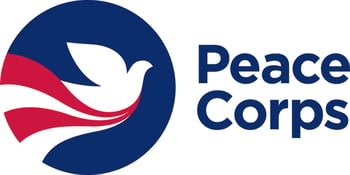 Dionne became interested in serving in the Peace Corps when he was in his early thirties, in part because he wanted to give something back. He felt very privileged in his life, having grown up in a family who, though not wealthy, were highly supportive. The Peace Corps allows couples to serve together as long as they apply individually and are accepted individually, and the opportunity would offer a way for Ross and his wife to get experience living overseas and acculturating to a different environment.
Dionne became interested in serving in the Peace Corps when he was in his early thirties, in part because he wanted to give something back. He felt very privileged in his life, having grown up in a family who, though not wealthy, were highly supportive. The Peace Corps allows couples to serve together as long as they apply individually and are accepted individually, and the opportunity would offer a way for Ross and his wife to get experience living overseas and acculturating to a different environment.
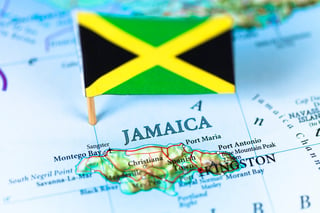 Upon receiving their assignment and arriving in Jamaica, they went through three months of acclimation, particularly focused on cultural integration. They took language classes in Jamaican “Patois” every day, and also practiced skill-building around the work they were going to do. They listened to music and learned Jamaican parables or children’s stories to help them “get into the minds” of the local people. Things Dionne did enjoy included having access to delicious fruit year-round, the warm climate, and jerk chicken, which Jamaica is famous for. In the beginning, they also lived with two different Jamaican families, eating what they families ate, and doing what they did. Both host families took them as if they were already family members, Dionne maintains, and he still keeps in touch with them.
Upon receiving their assignment and arriving in Jamaica, they went through three months of acclimation, particularly focused on cultural integration. They took language classes in Jamaican “Patois” every day, and also practiced skill-building around the work they were going to do. They listened to music and learned Jamaican parables or children’s stories to help them “get into the minds” of the local people. Things Dionne did enjoy included having access to delicious fruit year-round, the warm climate, and jerk chicken, which Jamaica is famous for. In the beginning, they also lived with two different Jamaican families, eating what they families ate, and doing what they did. Both host families took them as if they were already family members, Dionne maintains, and he still keeps in touch with them.
In the field, Dionne worked with the Coalition in Support of Adolescent Leadership Training (CSALT), which provided mentorship and training with boys aged 13-15. In the summer, the group took 16 boys into the mountains in a rural area. Most of the kids had grown up in suburbs to the city of Kingston, Dionne recalls, so they didn’t have much experience with outdoor activities like hiking, horseback riding, or swimming in creeks after jumping off rocks into the pools. Some of the kids weren’t necessarily athletic, but they were given the chance to push themselves beyond what they thought they could do. Those kinds of experiences stick with you, Dionne points out, and you can fall back on that memory of achievement when things seem insurmountable. When it comes to learning, activities that are fun and experiential—combined with skill-building around recognizing and dealing with emotion and goal-setting—plant seeds for success later in life. Dionne admits he took such activities for granted in his own young life since he had people around him who reached out when he didn’t know how to do something or needed some guidance.
Dionne learned a lot about how the Peace Corps began during the Kennedy administration and the individual who crafted the initiative, politician and activist Sergeant Shriver[1]. Shriver was led by his ideas and didn’t separate his work life from his values, going to great lengths to ensure the Peace Corps was not housed within international development bureaucracy, Dionne reports. Shriver drafted the three key goals for the Peace Corps: 1) To teach skills to your host country; 2) To help Americans understand other cultures; and 3) To help those in other cultures understand Americans[2]. The work done by Peace Corps volunteers represents international development work, but Peace Corps is focused on building peace between nations. Once they have served, Peace Corps volunteers are expected to act as an advocate of the country and culture in which they served for the rest of their lives.
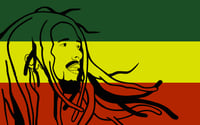 Some returned Peace Corps volunteers are more active in advocacy work than others, Dionne confirms, but he considers himself very fortunate because there is a large number of Jamaican immigrants in certain areas of the U.S. The largest economy in Jamaica is tourism, but the second is remittances, or money sent home by migrants. He can encounter Jamaicans on a bus in Maryland where he lives, or see evidence of the culture in many places around the world.
Some returned Peace Corps volunteers are more active in advocacy work than others, Dionne confirms, but he considers himself very fortunate because there is a large number of Jamaican immigrants in certain areas of the U.S. The largest economy in Jamaica is tourism, but the second is remittances, or money sent home by migrants. He can encounter Jamaicans on a bus in Maryland where he lives, or see evidence of the culture in many places around the world.  For example, Dionne was in China in 2004 and remembers seeing Bob Marley’s face on a poster in a tiny little Chinese village, and also often sees the celebratory lightning bolt gesture made famous by Jamaican Olympian Usain Bolt[3].
For example, Dionne was in China in 2004 and remembers seeing Bob Marley’s face on a poster in a tiny little Chinese village, and also often sees the celebratory lightning bolt gesture made famous by Jamaican Olympian Usain Bolt[3].
With a few months remaining in his 2-year commitment in Jamaica, and knowing he wanted to continue his education, Dionne began looking for programs. The Coverdell fellowship creates a relationship between the Peace Corps and institutions around the country which offer programs that fit well with the service that returned Peace Corps volunteers have already experienced, focusing on how returned Peace Corps volunteers can return home and continue to serve underserved populations in the U.S.
Dionne had read about Pacifica’s then new Community Psychology, Liberation Psychology, and Ecopsychology (C.L.E.) specialization while still in Jamaica, but wasn’t sure he was ready to jump directly into a Ph.D. program after living in Jamaica. Instead, he was awarded the Shriver Peaceworker Fellowship, which took him to the University of Maryland, Baltimore County where he earned a Master’s in Applied Sociology and realized he wanted to continue his education with a Ph.D.
He had been a little disillusioned with psychology due to what he deemed its “positivistic leanings,” but re-engaged with the idea and read over the Pacifica Community Psychology, Liberation Psychology, and Ecopsychologyspecialization again last fall. He felt like who ever had written the description for the specialization had “gotten into his head,” he marvels, because it featured everything he wanted to do. There were some things about the program that he wasn’t very familiar with, or hadn’t investigated fully, he confesses. He initially believed Ecopsychology was comparable to environmentalism, for instance, but quickly discovered there is a real depth to the field that goes far beyond conservation.
What really drew him to the specialization, however, was the content associated with Psychologies of Liberation. He has embraced Participatory Action Research (PAR), a process in which the researcher works with the population being studied to foster understanding for both them and the researcher via interactive dialogue about a particular topic. The end goal is then to put the findings into action and generate results which benefit the group.
This kind of process feels like it connects a lot more with the values he was trying to find an outlet for, he reveals, providing tools for us to better position ourselves. Americans like to think of themselves as the leaders of the free world, and while there are a lot of good things about America—including our ability to be optimistic about the future—we also need to be honest with ourselves about the role we’ve played in the world. Many people have suffered because of the decisions we have made as a nation and a culture.
Now a few months into the Ph.D. program in Community Psychology, Liberation Psychology and Ecopsychology at Pacifica, Dionne can already state with confidence that he has found his sangha, or spiritual community. These are his “people,” with whom he spends three days a month and leaves feeling charged every time. And while the program is not all easy, with some of the material really challenging his “positionality” as he puts it, he simply understands he needs to manage the process so he can continue to grow and deepen as a person. He truly feels the Pacifica program is offering a way to “distill the values and expectations you have for yourself, and also the growth process of coming into who you’re going to be in the world with the time you have here.” He believes those individuals who are responsible for the specialization are intentionally crafting how students are taking in information and delivering content so that students might “walk in the world a little more softly and also to have impact to improve the situation for people that need it the most.”
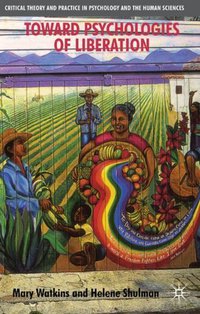 Our conversation makes me think of the book, Toward Psychologies of Liberation[4], by Mary Watkins and Helene Shulman, both of whom teach in the C.L.E. specialization, and how the field looks at the psychological well-being of individuals in relationship with the health of communities, environments, and cultures. It not only gives us the context of what our role is in the world, it also provides a lens through which we can begin to question not only our individual role in certain events, but also the role of our country and of the culture we were born into. In my courses at Pacifica, we talked a lot about colonization, and who was marginalized during the course of certain events in history.
Our conversation makes me think of the book, Toward Psychologies of Liberation[4], by Mary Watkins and Helene Shulman, both of whom teach in the C.L.E. specialization, and how the field looks at the psychological well-being of individuals in relationship with the health of communities, environments, and cultures. It not only gives us the context of what our role is in the world, it also provides a lens through which we can begin to question not only our individual role in certain events, but also the role of our country and of the culture we were born into. In my courses at Pacifica, we talked a lot about colonization, and who was marginalized during the course of certain events in history.
Dionne notes the importance of colonization in the history of Jamaica. He’s not sure he internalized it while he was living there, he says, but most of the inhabitants of Jamaica were brought over from Africa as slaves. It was definitely a colonial environment. For example, many of the foods sold at cook shops—little places on the side of the road offering chicken, dumplings, and boiled bananas, among others—are very high-calorie foods. This is a holdover from the colonial era when those foods were staples for hundreds of years when Jamaicans were forced to do hard physical labor and needed the large quantities of calories from starches to sustain them. Such understandings have helped Dionne connect the lived experience of the Peace Corps with some of the significant content from people who have put decades of thought behind how it is that we should position ourselves to other people, something which is really inspiring about the community at Pacifica, Dionne contends.
Although Dionne doesn’t quite know yet what his plan is for his studies in the program, there is no piece of suggested reading for the program he hasn’t enjoyed, and no shortage of work to be done, as he notes. He’d like to help build a society that’s equitable and treats people well, and the depth psychological component is that there is much that “happens behind the curtain.” The more we can get a handle on that, the more we can treat people with compassion, he affirms. His supervisor in Jamaica insisted he make a commitment to walking every day with a sense of disciplined compassion. There are a lot of things we’d like to see in the world that we don’t see as often as we’d like, he maintains, but those are things we can choose to be part of creating. Those opportunities arise every single day, and he’s excited to participate in the exploratory process.
It’s one thing to read things in books, but it’s a different kind of learning to actually live them, he insists. He welcomes the things and the people that come into his world while he’s studying, and is confident he’ll find meaningful work that will sprout in the next few years. Meanwhile, he’s trying to live the idea of non-attachment, and it’s a “wide open exciting thing” right now—a very powerful place to be.
Listen to the full audio interview with Ross Dionne here (approx. 31 mins)
1. Learn more about Peace Corps Robert Sargent Shriver, the driving force behind the creation of the Peace Corps: https://en.wikipedia.org/wiki/Sargent_Shriver
2. See more about the history of the Peace Corps and its goals: https://www.peacecorps.gov/about/
3. Read about the lightning bolt “power pose” used by Jamaican Olympian Usain Bolt on CNN: http://edition.cnn.com/2012/08/10/business/bolt-success-power-posing/
4. See a free preview of Toward Psychologies of Liberation, Mary Watkins and Helene Shulman, Palgrave, 2008: http://www.palgrave.com/us/book/9780230537682
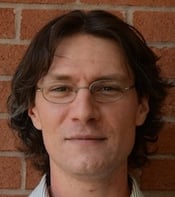 Born and raised in Western Massachusetts, Ross Dionne earned his Bachelors in Psychology at the University of Hartford, in West Hartford, Connecticut, after which he worked for a number of years in direct care, community mental health. In 2010, he served for two years in the U.S. Peace Corps in St. Ann, Jamaica, as a volunteer with the Coalition in Support of Adolescent Leadership Training. Upon his return to the U.S., he completed a M.A. degree at the University of Maryland, Baltimore County in Applied Sociology through the support of a Shriver Peaceworker Fellowship. Currently, Ross works for the Friends Research Institute in Baltimore, MD and pursuing a Ph.D. in Depth Psychology at Pacifica Graduate Institute, with a specialization in Community, Liberation and Ecopsychology as a Paul D. Coverdell Fellow
Born and raised in Western Massachusetts, Ross Dionne earned his Bachelors in Psychology at the University of Hartford, in West Hartford, Connecticut, after which he worked for a number of years in direct care, community mental health. In 2010, he served for two years in the U.S. Peace Corps in St. Ann, Jamaica, as a volunteer with the Coalition in Support of Adolescent Leadership Training. Upon his return to the U.S., he completed a M.A. degree at the University of Maryland, Baltimore County in Applied Sociology through the support of a Shriver Peaceworker Fellowship. Currently, Ross works for the Friends Research Institute in Baltimore, MD and pursuing a Ph.D. in Depth Psychology at Pacifica Graduate Institute, with a specialization in Community, Liberation and Ecopsychology as a Paul D. Coverdell Fellow
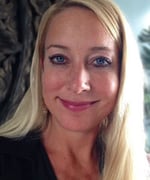 Bonnie Bright, Ph.D., is a graduate of Pacifica’s Depth Psychology program, and the founder of Depth Psychology Alliance, a free online community for everyone interested in depth psychologies. She also founded DepthList.com, a free-to-search database of Jungian and depth psychology-oriented practitioners, and she is the creator and executive editor of Depth Insights, a semi-annual scholarly journal. Bonnie regularly produces audio and video interviews on depth psychological topics. She has completed 2-year certifications in Archetypal Pattern Analysis via the Assisi Institute and in Technologies of the Sacred with West African elder Malidoma Somé, and she has trained extensively in Holotropic Breathwork™ and the Enneagram.
Bonnie Bright, Ph.D., is a graduate of Pacifica’s Depth Psychology program, and the founder of Depth Psychology Alliance, a free online community for everyone interested in depth psychologies. She also founded DepthList.com, a free-to-search database of Jungian and depth psychology-oriented practitioners, and she is the creator and executive editor of Depth Insights, a semi-annual scholarly journal. Bonnie regularly produces audio and video interviews on depth psychological topics. She has completed 2-year certifications in Archetypal Pattern Analysis via the Assisi Institute and in Technologies of the Sacred with West African elder Malidoma Somé, and she has trained extensively in Holotropic Breathwork™ and the Enneagram.



